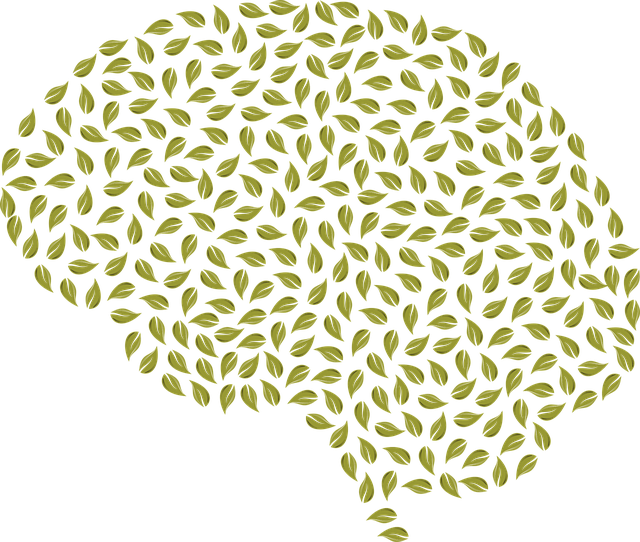Adolescent depression, characterized by persistent sadness and loss of interest, is heightened during brain development, with sleep playing a crucial role. Sleep deprivation exacerbates depressive symptoms in teens, impacting emotional regulation and cognitive function. Addressing sleep habits through improved sleep hygiene and interventions like CBT-I is vital for effective adolescent depression treatment. Techniques like consistent schedules, optimal bedroom conditions, and relaxing pre-sleep activities enhance well-being and promote healthier sleep patterns.
Adolescent depression is a growing concern, and understanding its relationship with sleep patterns is key to effective treatment. This article explores the intricate link between sleep and mental health in teens, focusing on how sleep deprivation can exacerbate symptoms of depression. We discuss innovative approaches like sleep therapy as a promising treatment option and provide practical strategies for improved sleep hygiene tailored to adolescents struggling with depression. By addressing these aspects, we aim to shed light on holistic methods for managing and potentially reversing this condition.
Understanding Adolescent Depression and Sleep Patterns
Adolescent depression is a significant mental health concern, often characterized by persistent feelings of sadness, loss of interest in activities once enjoyed, and difficulties with sleep. During adolescence, the brain undergoes critical development, making this period particularly vulnerable to the onset of depression. Sleep plays a pivotal role in this context, as it influences neuroplasticity, emotional regulation, and overall cognitive function.
Understanding the relationship between sleep and adolescent depression is crucial for effective treatment. Disrupted or inadequate sleep can exacerbate depressive symptoms, while promoting healthy sleep habits has been shown to enhance mood and improve outcomes in adolescent depression treatment. Recognizing this link is essential for healthcare professionals as it enables the development of comprehensive strategies that address both sleep and mental health concerns simultaneously.
The Impact of Sleep Deprivation on Teen Mental Health
Sleep deprivation among adolescents can have profound effects on their mental health, exacerbating symptoms of depression and anxiety. During adolescence, the brain undergoes significant development, making adequate sleep crucial for emotional regulation and cognitive function. When teens don’t get enough sleep, it disrupts the delicate balance of neurotransmitters like serotonin and dopamine that play a key role in mood stabilization. This can lead to increased irritability, difficulty concentrating, and changes in appetite—all common signs of adolescent depression.
Moreover, chronic sleep deprivation can weaken the brain’s ability to handle stress, making teens more susceptible to depressive episodes. Research suggests that insufficient sleep is linked to a higher risk of developing clinical depression, underscoring the importance of addressing sleep habits as part of adolescent depression treatment. Interventions aimed at improving sleep hygiene and promoting healthier sleep schedules can complement traditional therapeutic approaches, offering a holistic approach to managing teen depression effectively.
Exploring Sleep Therapy as an Effective Treatment Option
Sleep therapy emerges as a promising approach in the arsenal against adolescent depression treatment. By focusing on improving sleep quality and duration, this method aims to alleviate symptoms associated with depression. Adolescents experiencing depression often exhibit disrupted sleep patterns, such as insomnia or hypersomnia, which can exacerbate their emotional distress. Therefore, addressing these sleep disturbances is a strategic way to support overall mental well-being during this critical developmental phase.
Through various techniques like cognitive behavioral therapy for insomnia (CBT-I), professionals guide adolescents to adopt healthier sleep habits. CBT-I helps individuals identify and change negative thoughts and behaviors that interfere with sleep. As research suggests, such interventions can significantly reduce depression symptoms and improve overall mood stability in young people. Sleep therapy offers a non-pharmacological alternative, promoting natural recovery while empowering adolescents to take an active role in managing their mental health.
Strategies for Improved Sleep Hygiene in Adolescents with Depression
Improving sleep hygiene is a crucial component of adolescent depression treatment. For teens struggling with depression, establishing a consistent sleep routine can significantly impact their overall well-being. Simple strategies include maintaining a regular sleep schedule, ensuring the bedroom environment is cool, dark, and quiet, and limiting exposure to electronic devices an hour before bed.
Encouraging engaging activities before sleep, such as reading or journaling, can signal to the body that it’s time to wind down. Additionally, practicing relaxation techniques like deep breathing or mindfulness meditation can help reduce stress and anxiety, making it easier for adolescents with depression to fall asleep and enjoy a more restful night’s rest.
Sleep plays a pivotal role in managing and treating adolescent depression. By understanding the unique sleep patterns of teens and the impact of sleep deprivation, we can effectively employ sleep therapy as a powerful tool in their recovery. Furthermore, implementing strategies to enhance sleep hygiene can significantly improve overall mental well-being for adolescents struggling with this condition. Prioritizing quality rest alongside evidence-based treatments offers a promising path toward mitigating the effects of depression during these formative years and beyond. This comprehensive approach ensures that teens receive the holistic support they need for optimal mental health, ultimately improving their outlook and quality of life.
